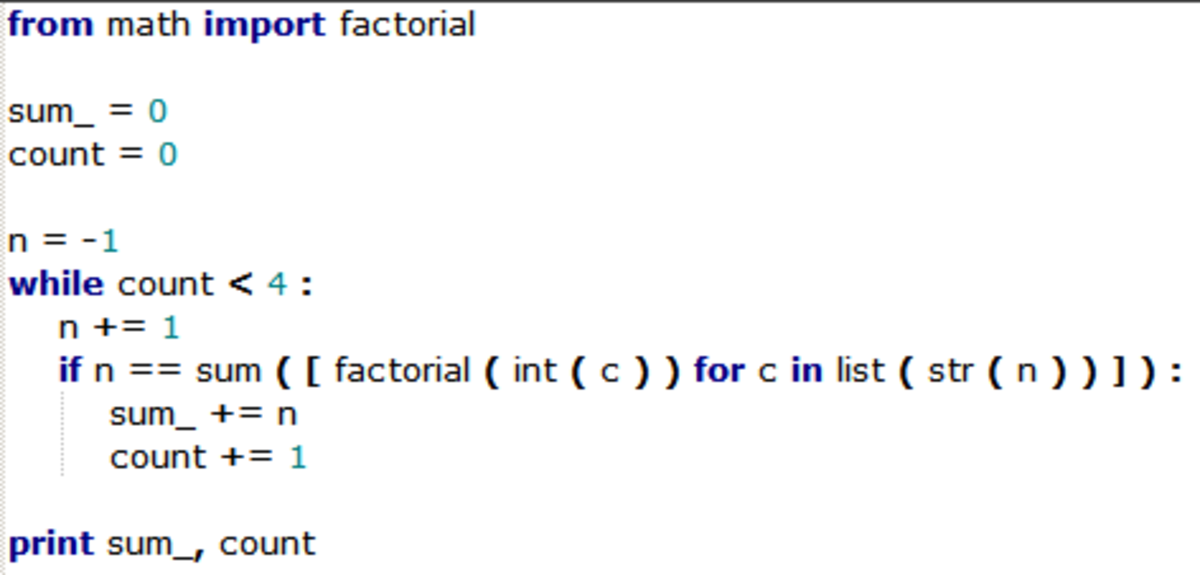Not cool: Summing factorials of digits
What is the sum of the first four non-negative numbers with the following property: the number is equal to the sum of the factorials of its digits.
For instance, 23 is NOT such a number, since 2!+3! = 2 + 6 = 8, which is not equal to 23.
The answer is 40733.
This section requires Javascript.
You are seeing this because something didn't load right. We suggest you, (a) try
refreshing the page, (b) enabling javascript if it is disabled on your browser and,
finally, (c)
loading the
non-javascript version of this page
. We're sorry about the hassle.

